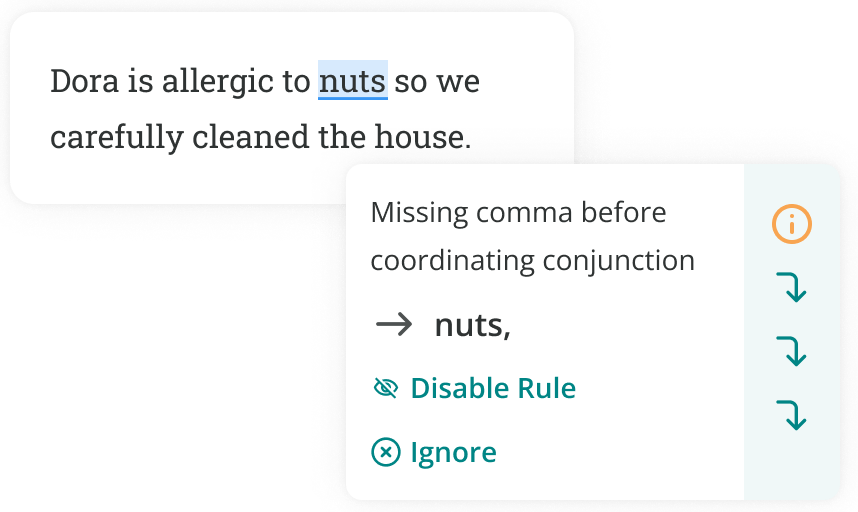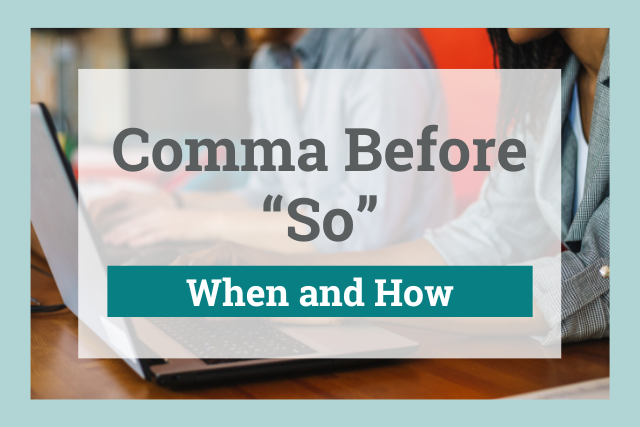
So is a tiny word with many functions in English. It can be an adverb, adjective, pronoun, coordinating conjunction, subordinating conjunction, and filler word.
Because so serves many purposes in a sentence, it’s hard to know when you should use a comma.
You should only use a comma before so when so is acting as a coordinating conjunction or a filler word. For all other parts of speech, no comma is necessary.
Let’s take a closer look at when you should use a comma before and after so.
Does the Comma Go Before or After So?
There are only two situations in normal English sentences where you put a comma before so, and only one instance where you put a comma after so. We’ll dive into each of these instances separately.
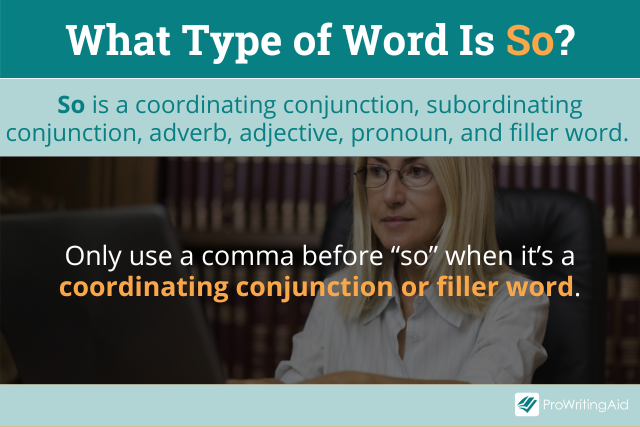
Comma Before So
Always use a comma before so when it’s acting as a coordinating conjunction.
Coordinating conjunctions connect two independent clauses. An independent clause expresses a complete thought.
Another way to think about independent clauses is that they are complete sentences when they stand alone without other clauses.
There are seven coordinating conjunctions in English: for, and, nor, but, or, yet, so. You can remember these with the acronym FANBOYS.
In English, we always place a comma before a coordinating conjunction. To connect two independent clauses, you must have a comma and a coordinating conjunction.
Let’s look at an example of how to use a comma before so as a coordinating conjunction:
- I bought groceries today, so we don’t need to order takeout for dinner.
You can see that so connects one independent clause to another, so we use a comma.
We also use so sometimes as a filler word. Filler words are those we use as pauses or interjections in our speech. Other filler words include um and like.
We don’t often write sentences with filler words because it’s very informal, but if you’re transcribing someone’s speech or writing dialogue, use a comma before so.
Here’s an example:
- I totally quit my job today, so, yeah, that happened.
For any other use of so, we don’t need a comma.
Comma After So
When so is a filler word, it also requires a comma after it. This is the only time you need to put a comma after so:
- So, are we just going to ignore the elephant in the room?
- Oh my goodness, so, he asked me out!
When so acts as any other part of speech, it does not require a comma after it.
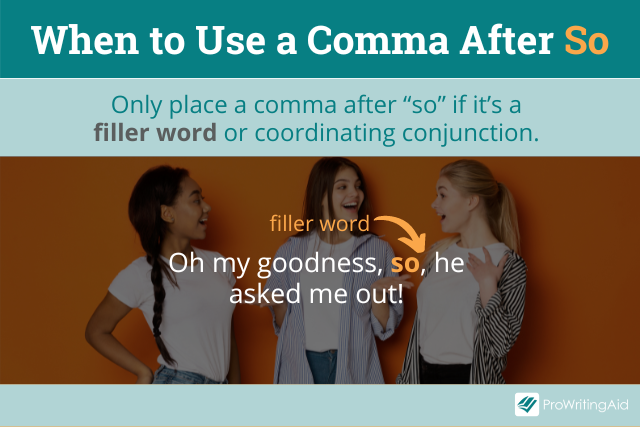
When to Use a Comma Before So
We know to use a comma before so when it’s connecting independent clauses, but what about when it’s connecting a dependent clause to an independent clause?
Subordinating conjunctions connect independent clauses to dependent clauses (also called subordinate clauses).
A dependent clause does not express a complete thought and therefore cannot stand on its own as a sentence. We do not place a comma before a subordinating conjunction.
Sometimes it’s tricky to tell whether so is subordinating or coordinating. The answer lies in the definition of so.
When so means “therefore,” treat it as a coordinating conjunction. When it means “in order to,” treat it as a subordinating conjunction.
Here’s what this looks like:
- Coordinating: He didn’t take his final exam, so he failed for the semester.
- Subordinating: He did extra credit so he could pass the class.
When you replace the first so with “therefore,” it makes sense. If you replace the second so with “in order to,” the meaning stays the same.
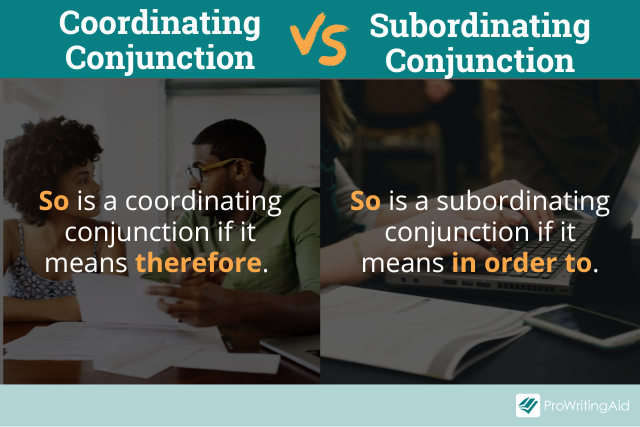
Do Not Use a Comma Before So That
Sometimes, so is paired with another subordinating conjunction: that. This is a clue that you have a dependent clause and do not need a comma before so.
So that is another way to say “in order to.”
Here’s an example:
- I work two jobs so that I can pay off my student loans.
Remember, never use a comma before so when it’s acting as a subordinating conjunction.
Comma Before or After So Examples
Here are some more examples of so connecting independent clauses or acting as a filler word. These are the only times we need commas.
- The sitter showed up late, so I missed my meeting.
- She had never flown before, so she was very nervous on the airplane.
- So, I finally tried that new taco place everyone was raving about.
- Okay, so, you wanted a cold brew and Karen wanted a blonde roast?
Don’t let comma rules confuse you. Use ProWritingAid’s free grammar checker to find any misplaced commas in your writing.
